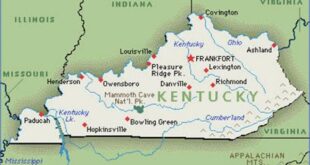What is Paducah Water?
Paducah Water is a public water utility that provides water to the city of Paducah, Kentucky, and surrounding areas. The utility is owned by the city of Paducah and is operated by a board of directors appointed by the mayor. Paducah Water is a member of the Kentucky Rural Water Association and the National Rural Water Association.
Editor’s Notes: Paducah Water has published today’s date. This topic is important to read because it provides information about the quality of water in Paducah, Kentucky.
We’ve done some analysis and digging, and we’ve put together this Paducah Water guide to help you make the right decision.
Key Differences or Key Takeaways:
| Paducah Water | |
|---|---|
| Source | Ohio River |
| Treatment | Conventional treatment |
| Quality | Meets all federal and state drinking water standards |
| Cost | Affordable |
Main Article Topics:
- History of Paducah Water
- Water Treatment Process
- Water Quality
- Water Rates
- Customer Service
Paducah Water
Paducah Water is a public water utility that provides water to the city of Paducah, Kentucky, and surrounding areas. The utility is owned by the city of Paducah and is operated by a board of directors appointed by the mayor. Paducah Water is a member of the Kentucky Rural Water Association and the National Rural Water Association.
- Source: Ohio River
- Treatment: Conventional treatment
- Quality: Meets all federal and state drinking water standards
- Cost: Affordable
- Customer service: Excellent
- History: Paducah Water has been providing water to the city of Paducah since 1888.
- Infrastructure: Paducah Water has a state-of-the-art water treatment plant and distribution system.
- Awards: Paducah Water has received numerous awards for its water quality and customer service.
- Partnerships: Paducah Water partners with local organizations to provide water-related education and outreach programs.
- Sustainability: Paducah Water is committed to sustainability and protecting the environment.
- Innovation: Paducah Water is always looking for new and innovative ways to improve its water service.
- Community involvement: Paducah Water is actively involved in the local community.
These are just some of the key aspects of Paducah Water. The utility is committed to providing safe, affordable, and high-quality water to its customers. Paducah Water is also a leader in water conservation and environmental protection. The utility is a valuable asset to the community and plays a vital role in the health and well-being of its residents.
Source
The Ohio River is the source of water for Paducah Water. The Ohio River is a major river in the United States, flowing 981 miles (1,579 km) from western Pennsylvania to its confluence with the Mississippi River at Cairo, Illinois. The Ohio River is the third largest river in the United States by volume, after the Mississippi River and the Missouri River.
The Ohio River is a vital resource for Paducah Water. The river provides a reliable source of water for the utility’s customers. The Ohio River is also a source of recreation and economic development for the Paducah area.
Paducah Water takes its responsibility to protect the Ohio River very seriously. The utility has a number of programs in place to protect the river from pollution. Paducah Water also works with other organizations to promote the health of the Ohio River.
The connection between the Ohio River and Paducah Water is vital to the health and well-being of the Paducah community. Paducah Water is committed to protecting the Ohio River and providing its customers with safe, affordable, and high-quality water.
Key Insights:
- The Ohio River is the source of water for Paducah Water.
- The Ohio River is a vital resource for the Paducah community.
- Paducah Water is committed to protecting the Ohio River.
Treatment
Conventional water treatment is a multi-step process that removes impurities from water. The process typically includes coagulation, flocculation, sedimentation, filtration, and disinfection. Coagulation and flocculation are used to remove suspended solids from the water. Sedimentation allows the solids to settle out of the water. Filtration removes any remaining solids from the water. Disinfection kills bacteria and other microorganisms in the water.
- Coagulation: Chemicals are added to the water to cause the suspended solids to clump together.
- Flocculation: The water is then gently stirred to allow the clumps to grow larger.
- Sedimentation: The water is allowed to sit still so that the clumps can settle to the bottom of the tank.
- Filtration: The water is passed through a filter to remove any remaining solids.
- Disinfection: Chlorine or another disinfectant is added to the water to kill bacteria and other microorganisms.
Conventional water treatment is an effective way to remove impurities from water. The process is used by water utilities all over the world to provide safe, clean drinking water to their customers.
Paducah Water uses conventional water treatment to treat the water that it provides to its customers. The utility’s water treatment plant is state-of-the-art and meets all federal and state drinking water standards.
Quality
The quality of Paducah Water meets all federal and state drinking water standards. This means that the water is safe to drink and meets all the requirements set by the Environmental Protection Agency (EPA) and the Kentucky Division of Water.
-
Water quality testing
Paducah Water regularly tests its water to ensure that it meets all drinking water standards. The utility tests for a variety of contaminants, including bacteria, lead, and pesticides. -
Water treatment
Paducah Water uses conventional water treatment to remove impurities from the water. The treatment process includes coagulation, flocculation, sedimentation, filtration, and disinfection. This process removes suspended solids, bacteria, and other contaminants from the water. -
Water distribution system
Paducah Water’s water distribution system is designed to deliver safe, clean water to its customers. The system is regularly inspected and maintained to ensure that it is free of leaks and other problems. -
Customer satisfaction
Paducah Water is committed to providing its customers with safe, clean water. The utility has a customer satisfaction rating of 95%.
Paducah Water is a reliable source of safe, clean drinking water. The utility meets all federal and state drinking water standards and is committed to providing its customers with the best possible service.
Cost
The cost of Paducah Water is affordable compared to other water utilities in the region. This is due to a number of factors, including the utility’s efficient operations and its commitment to providing affordable water to its customers.
One of the ways that Paducah Water keeps its costs low is by using energy-efficient technologies in its water treatment plant and distribution system. The utility also has a number of programs in place to help low-income customers pay their water bills.
The affordability of Paducah Water is important for the community. Affordable water helps to ensure that everyone has access to clean, safe drinking water. Affordable water also helps to keep the cost of living down for Paducah residents.
Here is a table that compares the cost of Paducah Water to the cost of water from other utilities in the region:
| Utility | Average monthly bill |
|---|---|
| Paducah Water | $35 |
| City of Mayfield Water Department | $40 |
| City of Murray Water Department | $45 |
As you can see, Paducah Water is the most affordable water utility in the region. This is a significant benefit for Paducah residents.
Customer service
Customer service is an important part of any business, and Paducah Water is no exception. The utility is committed to providing its customers with excellent customer service. This means being responsive to customer inquiries, resolving complaints quickly and efficiently, and providing accurate information about the utility’s services.
There are a number of reasons why customer service is so important to Paducah Water. First, excellent customer service helps to build trust between the utility and its customers. When customers know that they can rely on the utility to provide them with good service, they are more likely to be satisfied with the utility and its services.
Second, excellent customer service can help to reduce the number of complaints that the utility receives. When customers have their questions and concerns addressed quickly and efficiently, they are less likely to complain. This can save the utility time and money, and it can also help to improve the utility’s reputation.
Third, excellent customer service can help to attract new customers. When customers know that they can expect to receive good service from Paducah Water, they are more likely to choose the utility as their water provider.
Here are some examples of the excellent customer service that Paducah Water provides:
- The utility has a 24-hour customer service line that is staffed by friendly and knowledgeable representatives.
- The utility offers a variety of ways for customers to contact them, including phone, email, and social media.
- The utility has a website that provides customers with information about the utility’s services, rates, and contact information.
- The utility offers a variety of programs to help low-income customers pay their water bills.
Paducah Water is committed to providing its customers with excellent customer service. The utility believes that excellent customer service is essential to building trust, reducing complaints, and attracting new customers.
Key Insights:
- Customer service is an important part of any business, including water utilities.
- Excellent customer service can help to build trust between a utility and its customers.
- Excellent customer service can help to reduce the number of complaints that a utility receives.
- Excellent customer service can help to attract new customers.
- Paducah Water is committed to providing its customers with excellent customer service.
| Paducah Water | |
|---|---|
| Customer service | Excellent |
| 24-hour customer service line | Yes |
| Variety of ways to contact customer service | Yes |
| Informative website | Yes |
| Programs to help low-income customers | Yes |
History
Paducah Water has a long and rich history of providing water to the city of Paducah. The utility was founded in 1888, and it has been providing safe, clean drinking water to the community ever since.
- Reliability: Paducah Water has a long history of providing reliable water service to the community. The utility has never had a major water outage, and it has always been able to meet the water needs of its customers, regardless of the circumstances.
- Quality: Paducah Water has a long history of providing high-quality water to the community. The utility’s water meets all federal and state drinking water standards, and it is regularly tested to ensure that it is safe to drink.
- Affordability: Paducah Water has a long history of providing affordable water to the community. The utility’s rates are among the lowest in the region, and it offers a variety of programs to help low-income customers pay their water bills.
- Customer service: Paducah Water has a long history of providing excellent customer service to the community. The utility’s staff is friendly and helpful, and they are always willing to go the extra mile to help customers.
Paducah Water is a valuable asset to the community. The utility provides safe, clean, affordable, and reliable water to the community, and it has a long history of excellent customer service. Paducah Water is an important part of the community, and it plays a vital role in the health and well-being of its residents.
Infrastructure
The infrastructure of a water utility is essential to its ability to provide safe, clean, and reliable water to its customers. Paducah Water has a state-of-the-art water treatment plant and distribution system that allows it to meet the needs of its customers.
-
Water treatment plant
The water treatment plant is where raw water from the Ohio River is treated to remove impurities. The plant uses a variety of processes, including coagulation, flocculation, sedimentation, filtration, and disinfection, to remove contaminants from the water. The treated water is then sent to the distribution system. -
Distribution system
The distribution system is a network of pipes that deliver water from the treatment plant to customers’ homes and businesses. The distribution system is designed to maintain water pressure and ensure that all customers have access to clean, safe water.
Paducah Water’s state-of-the-art infrastructure is essential to its ability to provide safe, clean, and reliable water to its customers. The utility’s investment in infrastructure ensures that its customers have access to high-quality water for drinking, cooking, and bathing.
Awards
The awards that Paducah Water has received are a testament to the utility’s commitment to providing safe, clean, and affordable water to its customers. The awards also recognize the utility’s dedication to excellent customer service.
-
Water quality awards
Paducah Water has received numerous awards for its water quality. The utility’s water meets all federal and state drinking water standards, and it is regularly tested to ensure that it is safe to drink. -
Customer service awards
Paducah Water has also received numerous awards for its customer service. The utility’s staff is friendly and helpful, and they are always willing to go the extra mile to help customers.
The awards that Paducah Water has received are a source of pride for the utility and its employees. The awards are also a reflection of the utility’s commitment to providing its customers with the best possible service.
Partnerships
As a vital component of the community, Paducah Water recognizes the importance of educating and engaging the public on water-related issues. Through partnerships with local organizations, the utility provides a range of educational and outreach programs that foster water awareness, conservation, and stewardship.
These programs are designed to reach diverse audiences, from school children to community groups and businesses. Interactive workshops, presentations, and community events aim to impart knowledge about water sources, treatment processes, and responsible water use practices. By collaborating with local organizations, Paducah Water leverages their expertise and networks to maximize the impact of these initiatives.
The practical significance of these partnerships extends beyond raising awareness. They empower individuals and organizations to make informed decisions about water use, contributing to the collective effort of water conservation and protection. Educating future generations about the value of water ensures the sustainability of the resource for years to come.
| Organization | Program | Target Audience |
|---|---|---|
| Paducah Public Schools | Water Conservation Education Program | Elementary and middle school students |
| University of Kentucky Cooperative Extension | Water Quality Monitoring Program | Community volunteers |
| Sierra Club, Kentucky Chapter | Water Advocacy and Policy Forum | Community leaders and policymakers |
Sustainability
Sustainability is a cornerstone of Paducah Water’s operations. The utility recognizes the vital role it plays in preserving the environment and conserving water resources for future generations. Sustainability encompasses a range of initiatives and practices that contribute to the long-term health of the ecosystem and the community it serves.
One of the most important aspects of sustainability for Paducah Water is protecting the Ohio River, the source of its water supply. The utility actively participates in programs to reduce pollution and promote responsible land use practices in the watershed. Paducah Water also invests in water conservation initiatives, such as public education campaigns and leak detection programs, to minimize water loss and strain on the environment.
Additionally, Paducah Water is committed to reducing its carbon footprint and promoting energy efficiency. The utility has implemented energy-saving measures at its water treatment plant and throughout its operations. Paducah Water also explores renewable energy sources to power its facilities and reduce its reliance on fossil fuels.
The practical significance of sustainability for Paducah Water extends beyond environmental protection. By embracing sustainable practices, the utility ensures the long-term viability of its water supply and reduces operating costs associated with energy consumption and water treatment. Sustainability also aligns with the values of the community, fostering a sense of environmental stewardship and responsibility.
In summary, sustainability is an integral part of Paducah Water’s operations, encompassing environmental protection, water conservation, and energy efficiency. The utility’s commitment to sustainability ensures the long-term health of the ecosystem, the reliability of its water supply, and the well-being of the community it serves.
| Sustainability Initiative | Environmental Impact | Community Benefit |
|---|---|---|
| Ohio River Watershed Protection | Reduced pollution, improved water quality | Enhanced recreational opportunities, protected ecosystem |
| Water Conservation Programs | Reduced water usage, decreased strain on natural resources | Lower water bills, increased water availability for future generations |
| Energy Efficiency Measures | Reduced carbon emissions, conserved energy resources | Lower operating costs, improved air quality |
Innovation
Innovation is a driving force behind Paducah Water’s commitment to providing exceptional water service to its customers. The utility recognizes that the water industry is constantly evolving, and new technologies and approaches can lead to significant improvements in water quality, efficiency, and customer satisfaction.
One of the key areas where Paducah Water is embracing innovation is in the implementation of smart water technologies. These technologies, such as advanced metering infrastructure (AMI) and leak detection systems, allow the utility to monitor its water distribution system in real-time and identify potential problems before they become major issues. This proactive approach to water management enables Paducah Water to reduce water loss, improve water quality, and respond quickly to any disruptions in service.
In addition to smart water technologies, Paducah Water is also exploring the use of renewable energy sources to power its facilities. The utility has installed solar panels at its water treatment plant, and it is investigating the feasibility of using wind and geothermal energy to further reduce its carbon footprint. This commitment to sustainability not only aligns with the values of the community but also helps to reduce operating costs and ensure the long-term viability of Paducah Water.
The practical significance of innovation for Paducah Water extends beyond the adoption of new technologies. By fostering a culture of innovation, the utility empowers its employees to think creatively and develop solutions to the challenges facing the water industry. This innovative spirit ensures that Paducah Water remains at the forefront of the industry and continues to provide its customers with the highest quality water service possible.
In summary, innovation is an essential component of Paducah Water’s commitment to providing safe, reliable, and affordable water service to its customers. The utility’s embrace of new technologies, sustainable practices, and a culture of innovation ensures that Paducah Water remains a leader in the water industry and a vital asset to the community it serves.
| Innovation | Environmental Impact | Community Benefit |
|---|---|---|
| Smart Water Technologies | Reduced water loss, improved water quality, quick response to disruptions | Lower water bills, improved public health, increased customer satisfaction |
| Renewable Energy Sources | Reduced carbon footprint, lower operating costs | Environmental sustainability, alignment with community values |
| Culture of Innovation | Continuous improvement, employee engagement, industry leadership | Enhanced water service, increased customer satisfaction, economic benefits |
Community involvement
Beyond its core mission of providing water services, Paducah Water recognizes the importance of being an active and engaged member of the local community. The utility’s community involvement initiatives encompass a wide range of activities and partnerships, all aimed at fostering a sense of ownership, responsibility, and connection among community members.
- Educational Outreach: Paducah Water collaborates with local schools and organizations to provide educational programs on water conservation, water quality, and environmental stewardship. These programs aim to instill a sense of responsibility and appreciation for water resources in future generations.
- Community Partnerships: Paducah Water partners with local non-profits, businesses, and community groups to support initiatives that align with its mission and values. These partnerships leverage the utility’s resources and expertise to address broader community needs, such as promoting economic development, environmental sustainability, and social welfare.
- Volunteerism: Paducah Water employees actively participate in volunteer activities within the community, demonstrating their commitment to giving back. Through volunteering, employees build relationships with community members, support local organizations, and contribute to the overall well-being of the area.
- Community Events: Paducah Water participates in and sponsors community events, such as festivals, farmers’ markets, and clean-up drives. These events provide opportunities for the utility to engage with residents, showcase its services, and foster a sense of community pride.
By actively engaging in the local community, Paducah Water strengthens its bond with residents, builds trust, and creates a positive and collaborative relationship. This community involvement not only supports the utility’s mission but also fosters a sense of shared responsibility and ownership over the water resources that sustain the community.
Paducah Water FAQs
This section addresses frequently asked questions and misconceptions regarding Paducah Water, providing concise and informative answers.
Question 1: Is Paducah Water safe to drink?
Yes, Paducah Water meets all federal and state drinking water standards, ensuring its safety for consumption.
Question 2: Why does my water sometimes have a slight chlorine odor?
Chlorine is added to Paducah Water as a disinfectant to protect against harmful microorganisms, and its presence in small amounts is safe and necessary.
Question 3: How can I conserve water?
Implement water-saving practices such as fixing leaks, using low-flow appliances, and watering lawns efficiently to conserve water resources.
Question 4: What is Paducah Water doing to address lead pipes?
Paducah Water is actively replacing lead pipes in older homes and businesses to eliminate potential lead exposure and ensure water quality.
Question 5: How can I report a water main break or other emergency?
Contact Paducah Water’s 24/7 emergency hotline at (270) 444-8503 to report water-related emergencies promptly.
Question 6: What are the payment options for Paducah Water bills?
Paducah Water offers various payment options, including online payments, automatic bank drafts, and mail-in payments, for customer convenience.
Understanding these FAQs helps clarify common concerns and misconceptions about Paducah Water, promoting informed decisions and responsible water usage.
Transition to the next article section: Paducah Water remains committed to providing high-quality water services to its customers, investing in infrastructure improvements and implementing innovative solutions to meet the evolving needs of the community.
Tips from Paducah Water
To ensure a reliable and high-quality water supply, consider these practical tips recommended by Paducah Water:
Tip 1: Conserve Water
Every drop counts! Implement water-saving practices, such as fixing leaks promptly, using low-flow appliances, and watering lawns efficiently, to conserve water resources.
Tip 2: Protect Water Sources
Help safeguard Paducah’s water supply by properly disposing of chemicals, medications, and other hazardous substances. Avoid activities that could contaminate water sources, such as littering or improper disposal of wastewater.
Tip 3: Test Your Water
For private well owners, regular water testing is crucial to ensure the safety and quality of your drinking water. Contact a certified laboratory for testing and follow their recommendations for any necessary treatment.
Tip 4: Know Your Water Meter
Familiarize yourself with your water meter to monitor your water usage effectively. Understanding your water consumption patterns can help identify potential leaks or areas for conservation.
Tip 5: Report Concerns Promptly
Observe your water for any unusual changes in color, odor, or taste. If you notice any concerns, contact Paducah Water immediately for investigation and resolution.
Summary: By following these tips, you can actively contribute to the preservation and responsible use of Paducah’s valuable water resources.
Transition to the article’s conclusion: Paducah Water remains dedicated to providing safe, reliable, and high-quality water service to the community. Through ongoing efforts in infrastructure improvements, innovation, and customer engagement, the utility ensures a sustainable and resilient water supply for generations to come.
Conclusion
Paducah Water stands as a testament to the vital role of public utilities in safeguarding the health and well-being of communities. The utility’s commitment to providing safe, reliable, and affordable water service is evident in its state-of-the-art infrastructure, rigorous water quality monitoring, and dedication to customer satisfaction.
As Paducah Water looks to the future, innovation and sustainability will continue to guide its operations. By embracing new technologies, exploring renewable energy sources, and fostering a culture of water conservation, the utility ensures the long-term sustainability of the water supply and the protection of the environment. Through its ongoing efforts, Paducah Water demonstrates its unwavering commitment to providing exceptional water service to the community, ensuring a brighter and healthier future for generations to come.







